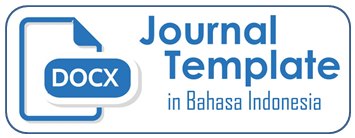Pengaruh Belanja Modal Terhadap Pertumbuhan Ekonomi Dan Kesejahteraan Masyarakat Di Pulau Kalimantan
DOI:
https://doi.org/10.26486/jramb.v2i2.284Keywords:
Belanja Modal, Pertumbuhan Ekonomi, Kesejahteraan MasyarakatAbstract
Penelitian ini bertujuan untuk mengetahui apakah terdapat pengaruh yang positif dari belanja modal terhadap pertumbuhan ekonomi, pertumbuhan ekonomi terhadap kesejahteraan ekonomi, dan belanja ekonomi terhadap kesejahteraan masyarakat di Pulau Kalimantan. Sumber data yang digunakan adalah data sekunder yang berupa laporan keuangan (APBD) Pemerintah Daerah di Pulau Kalimantan tahun 2006 hingga tahun 2013. Teknik analisis yang digunakan adalah dengan analisis Partial Least Square (PLS). Pengujian ini dilakukan di seluruh kabupaten/kota di Pulau Kalimantan. Dari hasil pengujian diperoleh hasil bahwa: 1) Belanja Modal memiliki pengaruh yang negatif dan signifikan terhadap Pertumbuhan Ekonomi, 2) Pertumbuhan Ekonomi memiliki pengaruh yang negatif dan signifikan terhadap Kesejahteraan Masyarakat, 3) Belanja Modal memiliki pengaruh yang positif dan signifikan terhadap Kesejahteraan Masyarakat.Â
Downloads
Published
Issue
Section
License
Authors who publish with (JRAMB) Jurnal Riset Akuntansi Mercu Buana agree to the following terms:
Authors retain copyright and grant the JRAMB right of first publication with the work simultaneously licensed under a Creative Commons Attribution License (CC BY-SA 4.0) that allows others to share (copy and redistribute the material in any medium or format) and adapt (remix, transform, and build upon the material) the work for any purpose, even commercially with an acknowledgement of the work's authorship and initial publication in JRAMB. Authors are able to enter into separate, additional contractual arrangements for the non-exclusive distribution of the journal's published version of the work (e.g., post it to an institutional repository or publish it in a book), with an acknowledgement of its initial publication in JRAMB.
Authors are permitted and encouraged to post their work online (e.g., in institutional repositories or on their website) prior to and during the submission process, as it can lead to productive exchanges, as well as earlier and greater citation of published work (See The Effect of Open Access).












